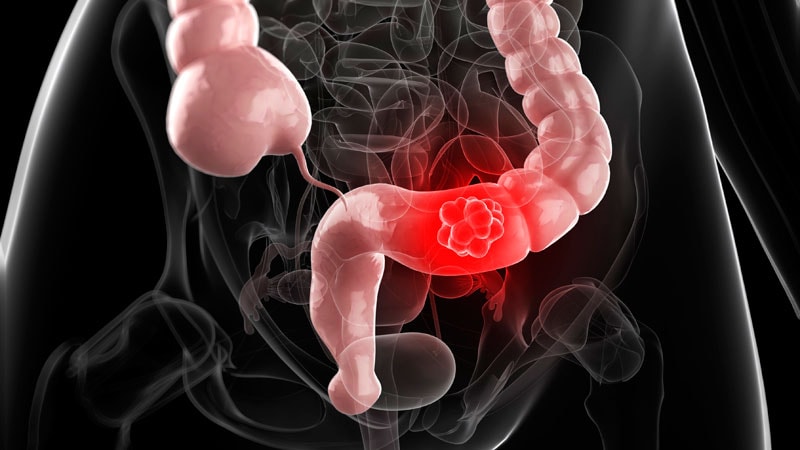For patients who underwent surgery for colorectal cancer, follow-up in general practice (GP) was as effective as follow-up provided by the surgeon. The rate at which colon cancer recurrence was detected was similar between the two groups, and there was no difference in mortality, a new study concludes.
“Time to detection of recurrences might be slightly longer when care is provided by a GP, but this does not seem to affect the outcome of the recurrence,” write the study authors.
The article was published online on January 30 in the Journal of the National Cancer Institute.
In the Netherlands, where the study was conducted, care for colon cancer survivors is provided by a surgeon, and GPs do not play a formal role. But in practice, GPs often provide support to patients in terms of aftercare and rehabilitation, and it has been suggested that GPs could play a greater role in this setting.
The I CARE study was initiated to evaluate follow-up care of colon cancer patients by a GP vs a surgeon. The primary outcome of the study was to assess quality of life with respect to the two disciplines. Results showed that during the first year after surgery, there was no clinically meaningful difference in change from baseline between the GP-led care groups and the surgeon-led groups.
Now the authors, led by Julien A. M. Vos, MD, of the University of Amsterdam, the Netherlands, and colleagues, report on a secondary outcome of the I CARE study. They evaluated the detection of recurrences and the effect on time to detection of recurrences and overall death following transfer from surgeon to general practice.
The study involved 303 patients who had been curatively treated for stage I–III colon cancer and had completed primary treatment. Patients underwent follow-up care with either a GP (n = 141) or a surgeon (n = 162). The recommended follow-up schedules were identical for both groups. Time to event was defined as date of surgery until date of recurrence or last follow-up, with death as “competing event.”
The mean age of the patients in the cohort was 68.0 years. About two thirds were men (67%). Stage I tumors were more common in the GP group (42% vs 33%; P = .10). About a quarter (22%; n = 68) received adjuvant chemotherapy, and 13 patients (4%) had a stoma.
During the 3-year follow-up period, 50 patients transferred from receiving care from the GP back to the surgeon. Transfers occurred because of suspected recurrence (n = 22), patient preference (n = 21), the presence of additional comorbidities that required specialist care (n = 6), and relocation of the patient (n = 1).
A total of 46 recurrences were detected; 18 recurreces were detected in general practice (13%), and 28 were detected in the surgical group (17%). Mortality did not differ between the two groups.
Most of the recurrences (74% of the cases) were detected following an abnormal follow-up test, including imaging results (n = 21) and results on the carcinoembryonic antigen (CEA) blood test (n = 12). In 22% of cases, recurrences were detected after the patient had experienced symptoms (n = 10), such as (abdominal) pain (n = 5), weight loss (n = 2), and changes in stool (n = 1).
Most of the recurrences were detected in the liver (n = 15), the gastrointestinal tract (n = 10), or the lungs (n = 6). Some occurred at multiple sites (n = 10).
Most patients (59%) received treatment with curative intent after detection of the recurrence. Those in the GP group were more often treated with curative intent (67% vs 54%), although the authors point out that this was “based on a small number of observations.”
Patients who received care from the GP group remained disease free for slightly longer than patients in the surgeon group (2.76 vs 2.71 years), indicating that the detection of recurrences took somewhat longer in the GP group, the authors note.
In an exploratory analysis, differences were seen in rate of follow-up testing. Overall, the rate of follow-up testing was higher in the surgeon group than in the GP group (rate ratio [RR], 1.15) and patient in the surgeon group were more likely to undergo more CEA tests (RR 1.19) and imaging tests (RR, 1.20). No significant differences were observed in the number of colonoscopies (RR, 0.92).
Among the entire cohort, 38 deaths occurred during follow-up, 15 (11%) in the GP group and 23 (14%) in the surgeon group. More than half (55%) were related to colon cancer. Unrelated deaths were mostly due to second primary cancers. The hazard ratio for overall death was 0.76, indicating that fewer deaths occurred in the GP group than in the surgeon group, although the difference did not reach significance.
“The detection of colon cancer recurrences is similar when follow-up is provided by a GP instead of a surgeon,” the authors conclude. “However, demonstrating differences in survival outcomes requires a great number of patients and considerable follow-up time, so these results should be pooled together with other studies to increase the certainty of evidence.”
The study was supported by a grant from KWF Kankerbestrijding/Stichting Alpe d’HuZes. The authors have disclosed no relevant financial relationships.
J Natl Cancer Inst. Published online January 30, 2023. Abstract
Roxanne Nelson is a registered nurse and an award-winning medical writer who has written for many major news outlets and is a regular contributor to Medscape.
For more news, follow Medscape on Facebook, Twitter, Instagram, and YouTube.
Source: Read Full Article



